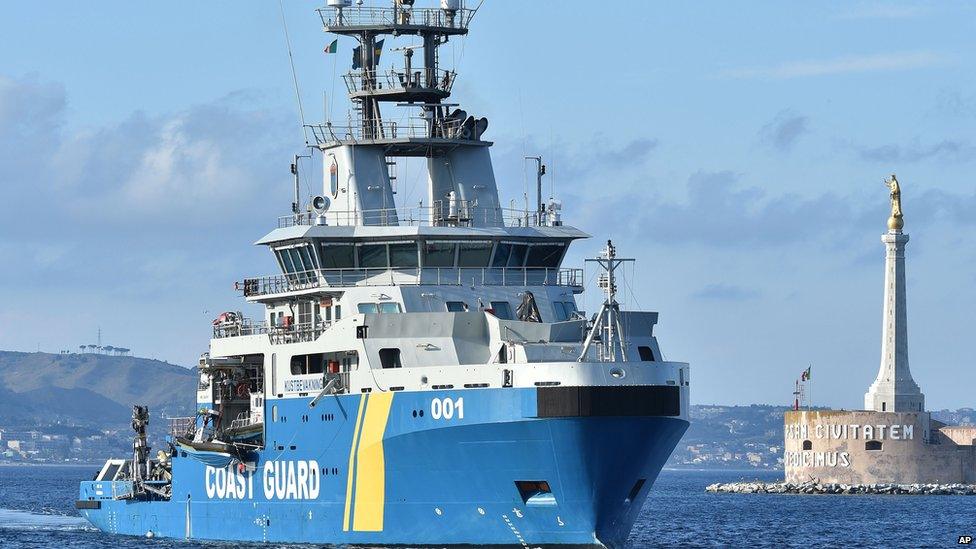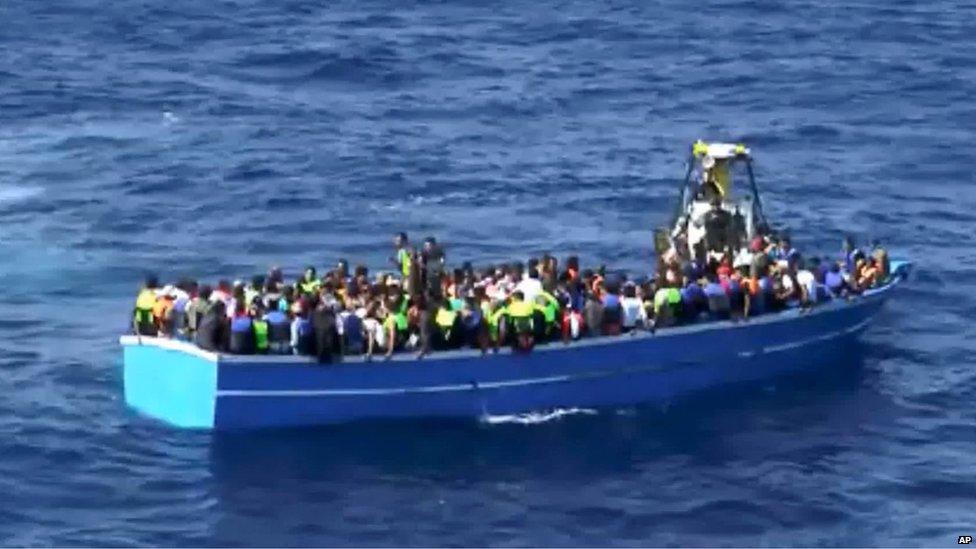Migrant crisis: Scores of bodies found on Libya boat
- Published

The Swedish coastguard ship Poseidon, pictured after a migrant rescue operation earlier this summer, is part of an EU-led mission in the Mediterranean
About 50 people have been found dead in the hold of a boat carrying migrants intercepted off the coast of Libya, the Italian coastguard says.
Italian media reports say the deaths were probably caused by asphyxiation.
About 430 people were rescued alive from the boat by a Swedish coastguard ship, the Poseidon, working with the EU's Frontex border agency.
Thousands of migrants have died and many thousands more have been rescued after setting sail from Libya recently.
Wednesday's rescue operation was one of 10 such missions currently taking place in the waters off Libya, the Italian coastguard said.

About 430 people were rescued off the boat
Mediterranean tragedy
Earlier in August, the Italian navy discovered the bodies of 49 people in the hold of a vessel.
Those migrants were thought to have died of asphyxiation. Survivors later testified that smugglers had forced them to remain in the hold.
Smugglers based in Libya are believed to be taking advantage of calmer seas to send more boatloads of migrants towards European shores.
European officials have described the plight of migrants, almost 250,000 of whom have crossed by boat to the continent this year, as "beyond urgent".
So far this year, more than 2,000 migrants have died trying to cross the sea to Europe, the UN says.
Vienna migration summit
Austria's Foreign Minister Sebastian Kurz says the Dublin regulation is not working
Meanwhile immigration via land routes is expected to dominate a summit in Vienna attended by the leaders from Germany, Austria and Balkan countries.
Ahead of the summit, Austrian Foreign Minister Sebastian Kurz told the BBC that current EU asylum regulations were not working.
He highlighted the failure of the Dublin regulation, which requires non-EU asylum seekers to register in the first country they arrive in.
"If we do not have functional border controls at the external borders of the European Union, the whole idea of the European Union without borders inside is in danger," Mr Kurz said.
The summit is expected to discuss ways to strengthen support for Western Balkan states, through which thousands of migrants travel through each week.
Earlier in the week, Macedonian police had to use stun grenades after thousands of migrants broke through police lines at the Greek border.